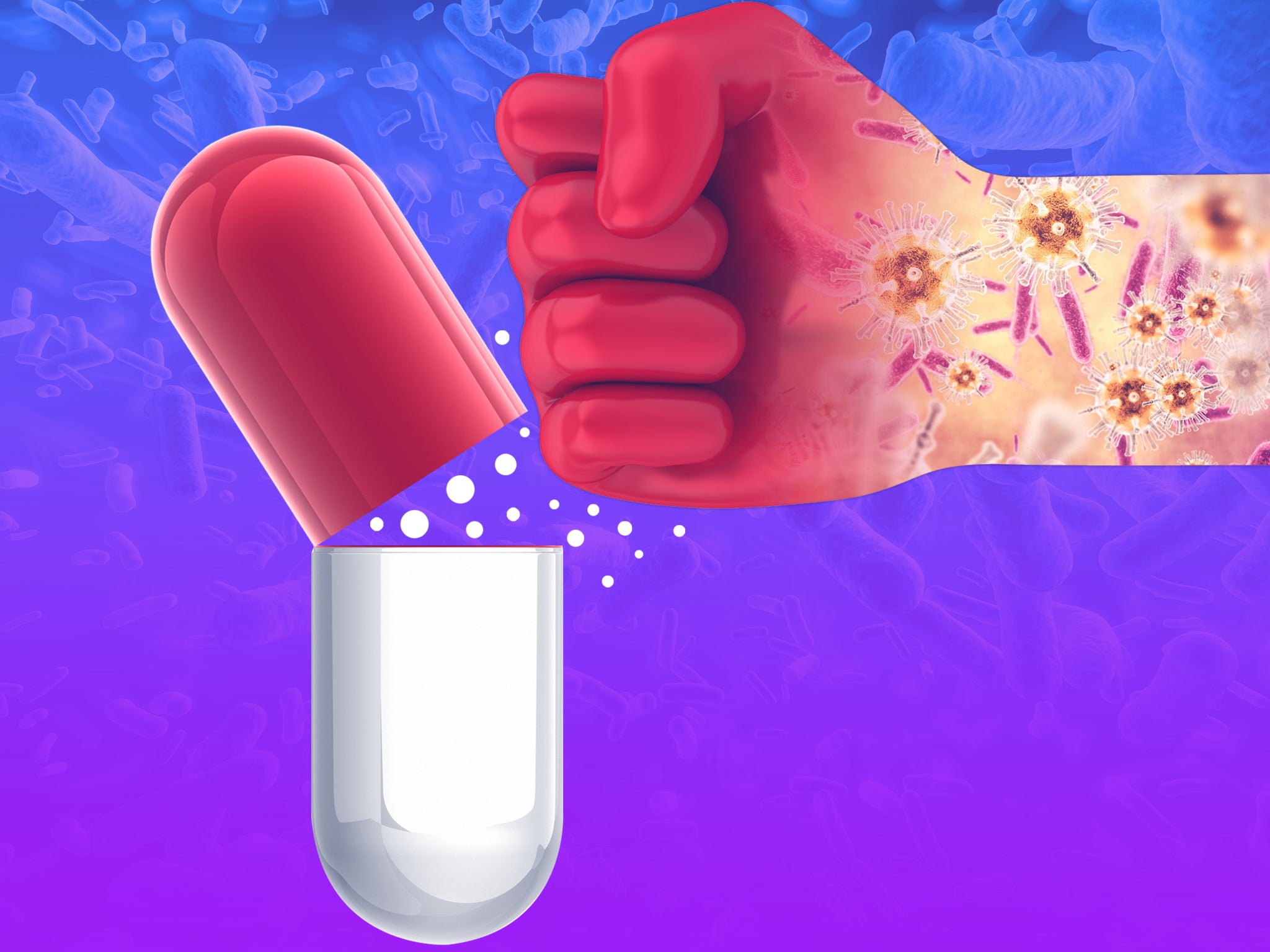To solve antimicrobial resistance we need to incentivise pharmaceutical companies
Business must play a central role, as it did in fighting coronavirus. But pharmaceutical companies can’t do this on their own, writes Chris Blackhurst


Wanted urgently: a new industry model.
The prognosis could not be more stark. On Friday, The Lancet launched online the results of the largest ever piece of research into the impact of bacterial resistance to antibiotics, or AMR.
The Global Research on Antimicrobial Resistance, or GRAM, study finds that 1.2 million people died worldwide in 2019 from infections caused by AMR. In addition, up to 5 million died from illnesses in which AMR played a role. To put that in context, in the same year, Aids caused 860,000 deaths and malaria 640,000.
Most of the AMR fatalities were caused by respiratory infections, such as pneumonia, and bloodstream infections that resulted in sepsis. MRSA and E coli were also major contributors.
GRAM was led by the University of Washington in the US, and took in 204 countries. It concludes that sub-Saharan Africa and Asia are seeing 24 deaths in every 100,000 people; in high-income countries it’s 13 in every 100,000. One in five will be children under five years old.
Professor Dame Sally Davies, the UK special envoy on AMR and former chief medical officer, said: “We must use these data as a warning signal to spur on action at every level.”
Unlike Covid-19, which came out of nowhere, we know this pandemic is coming. In a sense it is already here, but it is bound to get a lot worse – that 1.2 million tally is predicted to rise to 10 million deaths a year by 2050. We can combat AMR if we act quickly and decisively; in short, we must develop new antibiotics.
Business must play a central role, as it did in fighting coronavirus. But pharmaceutical companies can’t do this on their own – governments must work in partnership with the industry to ensure it is worth their while.
This requires a wholesale rethink. The UK pharmaceutical industry body, ABPI, is rightly pressing for urgent reform.
At present, there is little financial motivation for anyone to research and develop a new antibiotic. As a society, we take them for granted, turning to them for any bacterial infection. As a result, bacteria have become more resistant.
Antibiotics are sold by the packet, and a typical course of treatment is short. A patient takes them, and often does not complete the course – the pills are consigned to the cupboard, sometimes to be used at a later date.
We should be more responsible in how we use them. We must stop doling them out. And their makers must be properly reimbursed.
The history of the sector is littered with examples of companies that have brought antibiotics to the market only to fail. Last year, medium-sized pharma company Tetraphase, despite having developed and secured approval for a new antibiotic, eravacycline, at a cost of $600m (£443m), was sold for just $14.4m (£10.6m).
Instead of paying by the packet, which is uneconomical for the company, we need a new subscription arrangement, so that a government is paying for access to a drug – the antibiotic is there if required
Another firm, Achaogen, developed plazomicin to defeat a type of highly resistant bacteria, spending $500m-plus, then brought it successfully through registration to US approval. The company had sales of $0.8m during 2018, and was declared bankrupt in 2020.
There are many more commercial casualties like these. The problem is that the research bank is bare – companies either ceased researching or did not even start. The Conservative MP Kevin Hollinrake took part in a recent Westminster Hall debate on AMR. “Antibiotic resistance is happening now, with bacteria gradually evolving to beat even our best, most powerful antibiotics,” he said. “We were warned in 1945 by Alexander Fleming about the dangers of misusing penicillin and the ability of microbes to become resistant. We are now living that reality.”
He continued: “Often the cost of researching and developing a new antibiotic outweighs the return, which impacts future research. Pharmaceutical companies currently have no incentive to develop new antibiotics which may be seldom used, even though what we want them to develop is antibiotics that will be used sparingly as a last line of defence. This isn’t like coronavirus, where vaccines are going to be used at huge volumes; this is like insurance that we hope we will never use.”
As the GRAM study so graphically illustrates, we must urgently kickstart the sector and try and get it up to speed, so we can begin to push back against the resistant infections.
Instead of paying by the packet, which is uneconomical for the company, we need a new subscription arrangement, so that a government is paying for access to a drug – the antibiotic is there if required, it’s used responsibly, and the pharma company has been properly paid for researching and developing it and for making it available.
In the UK, we have the opportunity to take a lead, as we did with the coronavirus vaccine. NICE, the health guidance organisation, is working with the NHS and NHS Improvement to test a new evaluation process and payment system. They’re looking at two antibiotics and how their manufacturers are rewarded. Critically, says NICE: “This will mean the payments made to companies are based on the value to the NHS and not linked to the volumes sold.”
Covid-19 will be defeated, or at least manageably contained, by a three-party alliance of public, governments and pharmaceutical companies.
The AMR threat can also be overcome in the same way, by people rationing antibiotic usage for only the most necessary cases, by governments educating, encouraging and incentivising, and by business stepping up. We’ve done it before; we can do it again.




Join our commenting forum
Join thought-provoking conversations, follow other Independent readers and see their replies
Comments